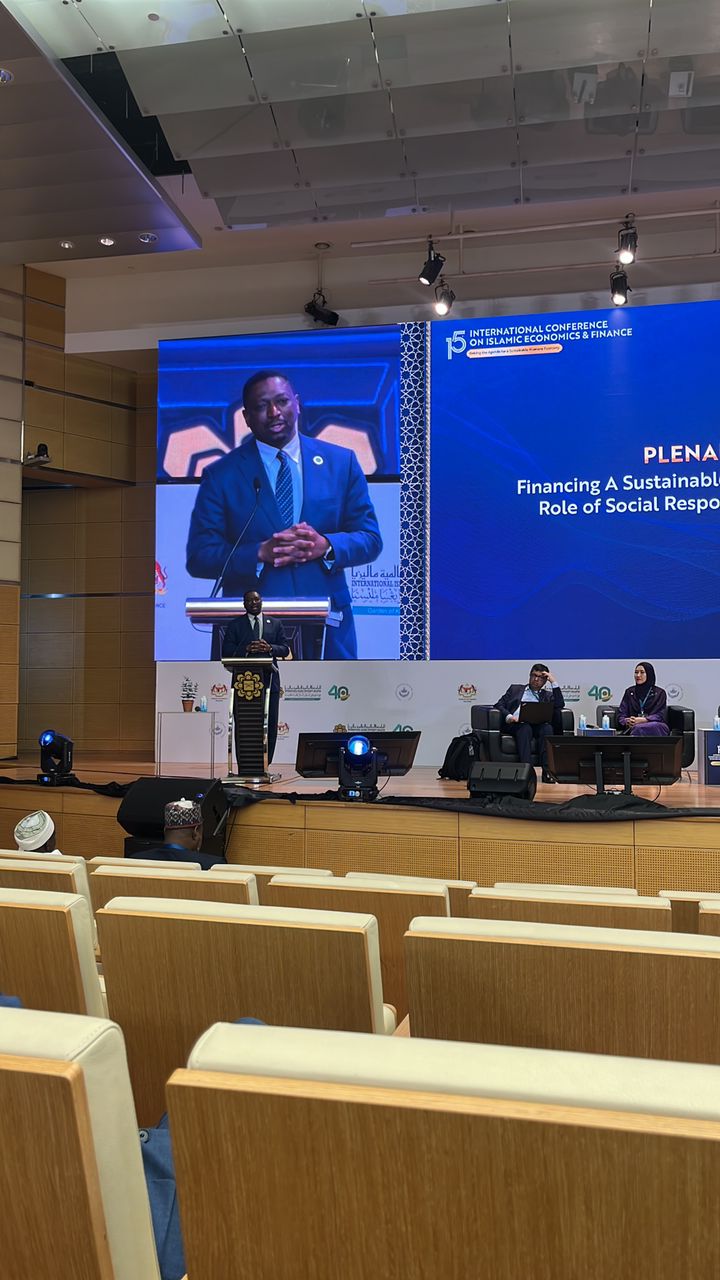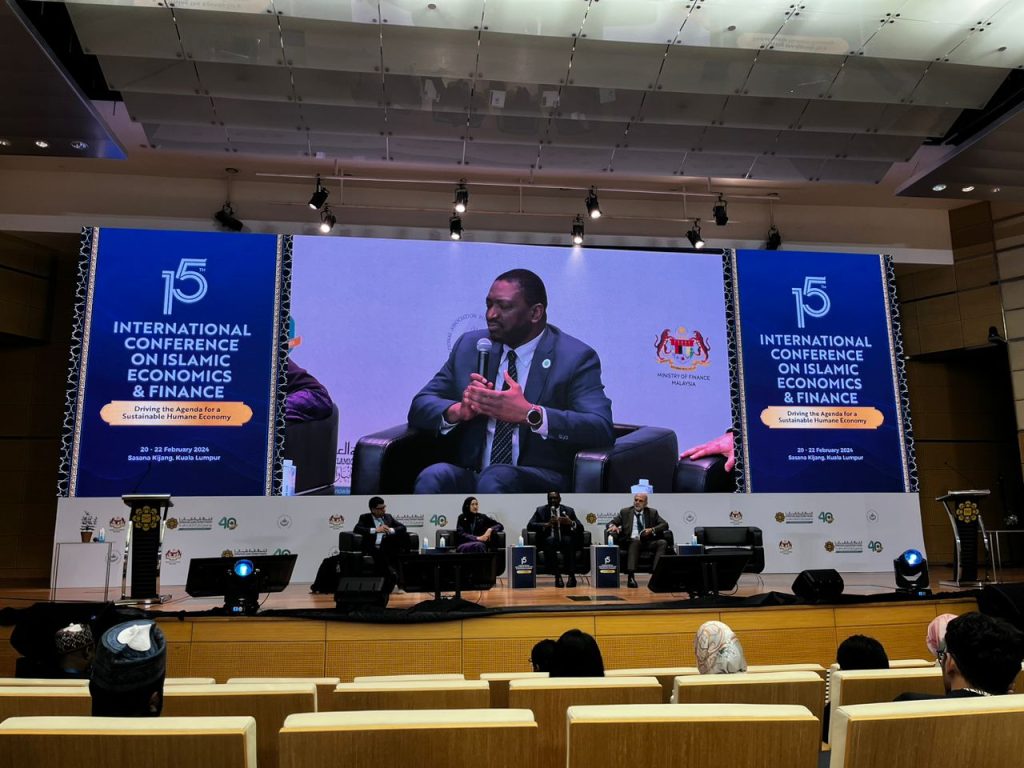
H.E. Koutoub Moustapha Sano, Secretary General of the Academy, took part in the dialogue session of the 15th Conference on Islamic Economics and Finance (IEF) entitled “The Role of Social Responsibility in Funding a Sustainable Human Economy”, on Wednesday 11 Sha’aban 1445, corresponding to 21 February 2024, in Kuala Lumpur, Malaysia.
His Excellency expressed his thanks to the conference organizers, the Central Bank of Malaysia, the Association of Islamic Economics Scholars, and IIUM’s Faculty of Economics and Management for the warm reception and hospitality. He spoke about the devastating effects of the grinding and terrible wars in some countries such as the ongoing civil war in Sudan, the Ukrainian-Russian war, and the genocidal war in Gaza, indicating the negative implications of these conflicts for the global economy, calling upon scholars and policymakers to pursue economic policies and programs that would promote sustainability.
His Excellency then spoke about the objectives of the Islamic economy, which aspire to achieve the comprehensive well-being of individuals, society and humanity as a whole, saying: “The Islamic economy does not only aspire to fulfill the material needs of the individual, but also seeks to fulfill the social and spiritual needs, and therefore, it aims to achieve the comprehensive well-being of the individual, society and humanity as a whole. Thus, there is an urgent need to work for the Islamic economy to become an effective economy that contributes to the concrete and comprehensive development of the individual and society. Many texts in the Quran and Sunnah exhort believers to work and encourage them to invest and develop money and consider all this as a kind of legitimate, sacred, and obligatory worship to combat poverty, destitution and oppression.
Regarding the sustainable economy called for by this conference, His Excellency emphasized: “Sustainability in the Islamic economy is essential to the development of the human economy and is closely linked to what is known as corporate social responsibility, where there is purposeful cooperation between the owners of companies and the communities in which they operate to combat poverty and destitution, achieve well-being and comprehensive development, by eliminating corruption and favoritism, by promoting good governance, and protecting the environment and ecosystem, thus contributing to growth, supporting humanitarian work to relieve disaster victims, those affected during epidemics and displaced persons during conflicts, as well as fighting greed and individualism through several mechanisms known as financial institutions, such as zakat, waqf, testaments, donations, etc.
His Excellency called for the need to connect economic activity to moral responsibility, which from the Islamic perspective means the need for economic activity to adhere to numerous values, the most important of which are mercy, justice, honesty, and piety, when satisfying the material, social and spiritual needs of the individual and society together. He also called for obligating companies to contribute to this moral, social responsibility to achieve the well-being and comprehensive development of societies by requiring companies to follow the policies and regulations in force in the host country, especially in national development and environmental preservation.
His Excellency also touched on the purposes of Islamic economics, which are derived from the five purposes/maqasid of Sharia, especially the purpose of preserving wealth, which is represented by five purposes: (i) preserving the growth of wealth by work, investment, and production, (ii) preserving the circulation of money by prohibiting hoarding, monopoly, and any activity that does not lead to this goal, (iii) preserving justice by prohibiting any economic activity that includes injustice and aggression against others, such as usury, gambling, and facilitator, and (iv) preserving the clarity of economic activity and the knowledge of all parties to it. This means prohibiting any economic activity based on gharar and ignorance, and (v) maintaining stability, which is known today as sustainability, which means maintaining the continuity and quality of economic activity in order to achieve stability, permanence, comprehensive well-being, as well as combating poverty and destitution in societies.
In the end, His Excellency emphasized that the best solution to economic issues that all other economic theories have failed to solve lies in returning to the values and objectives of Islamic economics, calling on researchers in contemporary Islamic economics to enhance their understanding and awareness of Sharia’s objectives in general, and of Islamic economics in particular, in order to contribute thoughtfully to providing visions and proposals capable of solving the economic issue represented by the inability of limited financial resources to meet the increasing needs of the individual and society; as per the Quran: “And there is no creature on earth but that upon Allah is its provision, and He knows its place of dwelling and place of storage. All is in a clear register.” (11:6), and the hadith of Prophet Mohammed (PBUH): “O people, fear Allah and be moderate in seeking a living, for no soul will die until it has received all its provision, even if it is slow in coming. So fear Allah and be moderate in seeking provision; take what is permissible and leave what is forbidden.”
Read Also
Lastest









